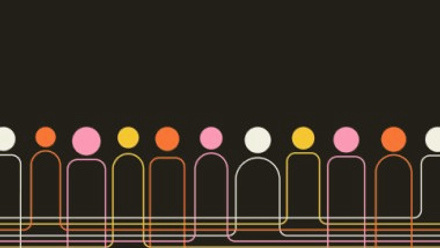What Gen Z can teach us about work and benefits
Younger generations have always faced criticism from their elders. Millennials, the "Me, Me, Me Generation" according to Time magazine in 2013, bore the brunt of the criticism. That was until before Generation Z (Gen Z) shuffled into view. Now, it's the latest youngsters who are stepping into the limelight to be misjudged and misunderstood by employers struggling to get to grips with their view of the world.
What sets Gen Z apart?
Generation Z, born roughly between 1997 and 2012, is the most diverse and inclusive generation yet. A significant number of Gen Z individuals identify as LGBTQ+, more so than older generations. They champion progressive social values, emphasizing social responsibility, ecological concernand ethical consumerism. As true digital natives, they have grown up with smartphones and social media which are central to their lifestyles. They’re usually open about mental health issues and, in general, are highly health and wellness-conscious, eschewing alcohol and tobacco, while being well-informed about nutrition and exercise from a young age.
Gen Z’s approach to work
In the workplace, true to their progressive social values, Gen Z values diversity, equity and inclusivity more than previous generations. Gen Z employees are more likely to evaluate a company's social media presence, impact, values and organizational culture before committing.
As a health conscious generation, they will also often prioritise availability of health benefits over salary. Wellbeing solutions are more popular with a Gen Z audience than older generations; platform usage data from WONE shows 95% of a Gen Z audience are engaged - more than double the average usage rate.
They place a high value on professional freedom and autonomy, desiring roles that allow for individuality and self-expression. This generation, accustomed to simplicity and instant gratification, expects quick feedback and validation for their work.
Unlike their predecessors who often stayed with a company for many years to gain benefits such as pensions, Gen Z tends to switch jobs more frequently. This job-hopping enables them to seek better opportunities and higher earnings, reflecting a strategic approach to career growth rather than a lack of commitment.
Why Gen Z’s openness isn’t a sign of weakness
There is a common misconception that Gen Z is weaker or more fragile than older generations. This belief is rooted in a misunderstanding of how newer generations express their emotions and vulnerabilities. Previous generations, particularly Gen X and Baby Boomers, were taught to repress their feelings, viewing vulnerability as a weakness. In contrast, Gen Z's openness about mental health and emotional struggles is a sign of strength and authenticity.
This generational shift has created a perceptual rift. Older generations may view Gen Z's transparency and emotional expression as signs of weakness, when in fact, these traits are indicative of a more supportive and understanding social norm. Voicing troubles and seeking help is becoming normalized, challenging the outdated notion that professionalism requires emotional suppression.
Understanding this context is key to debunking the myth of Gen Z's supposed weakness. By appreciating the differences in generational attitudes toward emotional expression and mental health, employers can foster a more inclusive and supportive work environment. Recognizing that what might appear as neediness or oversensitivity is actually a healthy and progressive approach to well-being is crucial for bridging the gap between generations in the workplace.
In conclusion, firms that fail to understand and adapt to Gen Z's unique attitudes and values are missing out on the potential of a highly motivated and conscientious workforce. By embracing diversity, promoting social responsibility, and supporting mental health through workplace wellbeing, employers can create a workplace where Gen Z employees thrive, bringing their full potential to the organisation.
Supplied by REBA Associate Member, Walking on Earth (WONE)
Walking on Earth (WONE) is the first preventative stress management solution for the workplace.








